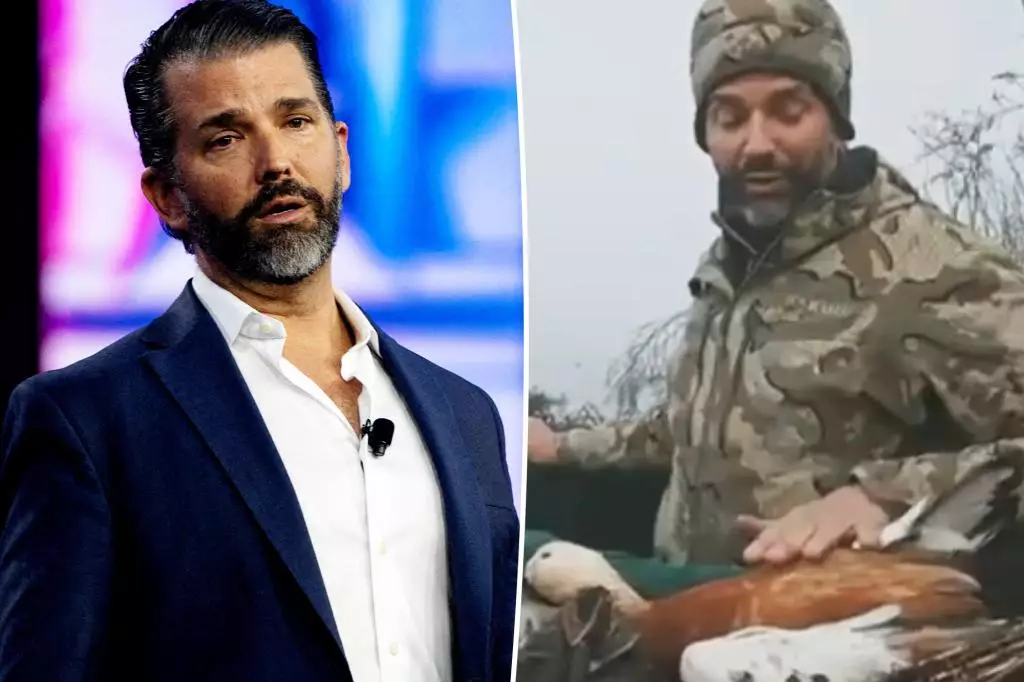A recent duck hunting expedition featuring Donald Trump Jr. has sparked significant controversy in Italy, leading to an investigation by the Venice Prosecutor’s Office. The alleged misconduct came to light following a video shared on Trump Jr.’s media platform, Field Ethos, which showcased moments from the hunting trip near Venice. While the video primarily exhibits the gathering of hunters and their game, it drew the ire of local environmental activists after a rare duck—believed to be a Ruddy Shelduck, a legally protected species—was shown in the footage. This incident raises questions about hunting practices, legal regulations, and conservation efforts across international borders.
The legal framework surrounding the hunting of protected species is stringent in Europe, with activists asserting that these laws must be upheld regardless of the circumstances surrounding the hunt. Activist Andrea Zanoni took the initiative to file a complaint, suggesting that even if the duck was killed by a hunting dog or by another party, the possession of the bird falls within the accountability of those present in the hunting party. “It doesn’t matter who shot it; the law addresses all individuals in possession of protected wildlife,” Zanoni stated, emphasizing the collective responsibility of hunters.
In defense, a spokesperson for Trump Jr. claimed that all necessary permits were acquired, and the hunting expedition was conducted in an area where many other hunting groups operated. However, environmentalists remain skeptical, claiming that the mere presence of permits does not absolve hunters from the legal consequences of taking a protected species. This incident shines a light on how regulations might vary between nations and how individuals ensuring wildlife conservation are often at odds with traditional hunting practices.
Massimo Buconi, the president of the Italian Hunting Federation, highlighted a significant issue regarding the understanding of hunting regulations in a global context. While hunting can carry a cultural and historical significance, the regulations surrounding endangered species exist to protect biodiversity. Buconi noted that in Europe, the protection of species like the Ruddy Shelduck is taken seriously. Should it be confirmed that Trump Jr. or his party hunted the protected bird, the implications could extend beyond just legal repercussions, potentially affecting public perception and highlighting the discrepancies between personal hunting ethics and legislative constructs aimed at preserving wildlife.
This incident is not an isolated one for Donald Trump Jr., who has attracted criticism for similar exploits in the past. His 2019 expedition where he allegedly shot an endangered sheep in Mongolia, only to be retroactively granted a permit, raised eyebrows regarding ethical hunting practices and his regard for conservation efforts. The recurring pattern poses questions about the appropriateness of his public persona as a hunter in high-profile situations where the stakes for endangered species and legal compliance intersect.
As the investigation continues, the case of Donald Trump Jr.’s duck hunting trip serves as a critical reminder of the intertwined nature of hunting, wildlife protection laws, and the ethical considerations that hunters must navigate in a globally interconnected environment. The outcome of this case may influence discussions about hunting regulations and reinforce the importance of prioritizing conservation alongside cultural practices in the modern era.
